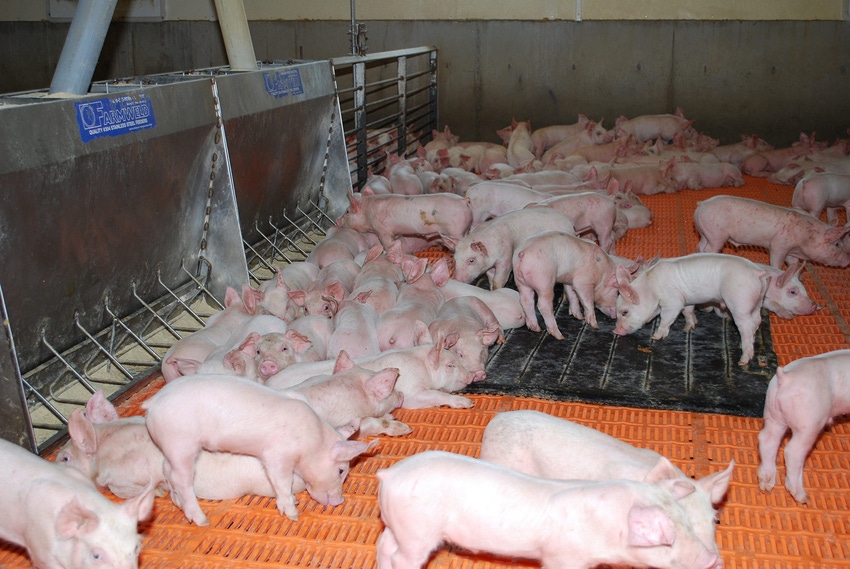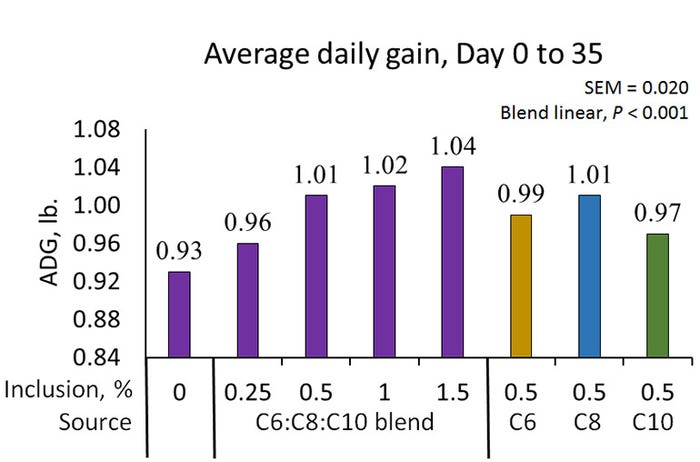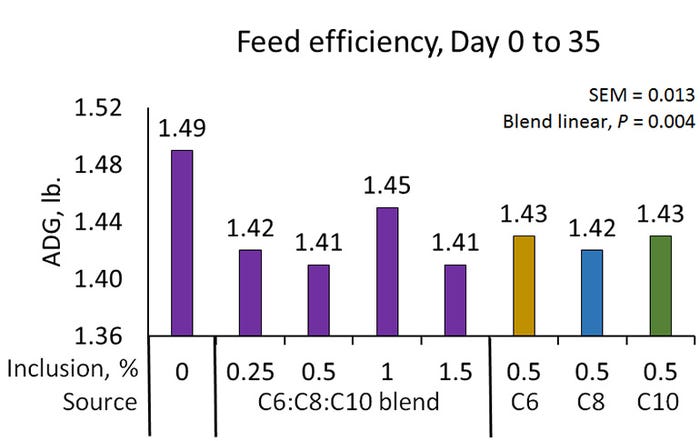Use of MCFA in nursery diets may be a potential option to improve performance and profitability of swine producers.
November 16, 2017

By Jordan T. Gebhardt, Jason C. Woodworth, Steve S. Dritz, Mike D. Tokach, Robert D. Goodband and Joel C. DeRouchey, Kansas State University
Medium chain fatty acids are naturally occurring molecules consisting of 6 to 12 carbon length chains. Such molecules have been shown to have anti-viral and anti-bacterial characteristics against pathogens which can be found in livestock feed and pet food.
Previous research conducted at Kansas State University has demonstrated adding MCFA to feed can prevent porcine epidemic diarrhea virus infection in pigs when the feed is inoculated with PEDV after processing. This research has also indicated certain MCFA appear to be more effective than others. These unique properties led us to postulate whether MCFA have the potential to improve growth of nursery pigs. The objective of the study was to measure the impact on growth performance of weanling pigs when diets were supplemented with increasing levels or sources of MCFA.

Figure 1: Effect of medium chain fatty acid inclusion on average daily gain of 15- to 50-pound pigs.
To evaluate this hypothesis, pure hexanoic acid (C6), octanoic acid (C8) and decanoic acid (C10) were combined in a 1:1:1 blend and included into feed as a dose titration (0, 0.25, 0.5, 1, 1.5%) or added alone at 0.5% to form eight dietary treatments. A total of 360 barrows were randomly assigned to pens following weaning, and pens were subsequently assigned dietary treatments beginning at approximately 15 pounds body weight. Diets contained the same MCFA supplementation level for the full duration of the study and were fed in two dietary phases (15 to 25 pounds and 25 to 50 pounds body weight) formulated to meet or exceed National Research Council (2012) nutrient requirement estimates.
From Day 0 to 14, increasing levels of MCFA increased average daily gain by 8, 15, 20, and 26% for pigs fed 0.25, 0.5, 1.0 and 1.5% MCFA, respectively, compared with the control. The improvements in growth were due to improved average daily feed intake and feed-to-gain. Pigs fed 0.5% of only C6 or C8 also had 17 and 23% greater ADG, respectively, than pigs fed the control. The growth benefits to the MCFA continued into the second phase, such that final body weight was improved by dietary addition of C6 (2 pounds), C8 (2.7 pounds) or increasing levels of the MCFA blend (1, 2.6, 2.9 and 3.7 pounds, respectively) compared to the control. Fecal consistency score increased in a linear manner with increasing MCFA blend supplementation, representing firmer stool.

Figure 2: Effect of medium chain fatty acid inclusion on feed efficiency of 15- to 50-pound pigs.
In summary, addition of an MCFA blend in nursery pig diets led to linear improvement in ADG, ADFI and F/G. Thus, the use of MCFA in nursery diets may be a potential option to improve performance and profitability of swine producers.
You May Also Like



